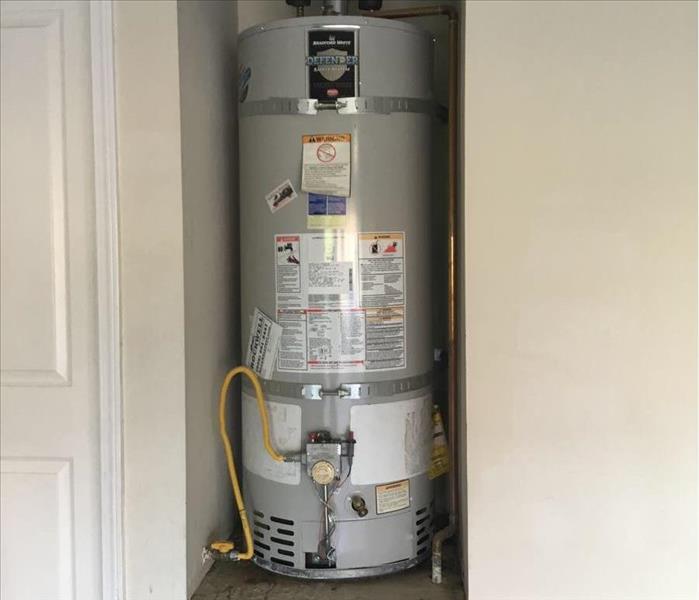Water Heater
2/20/2020 (Permalink)
A life without hot water is a difficult life, indeed. Water heaters are a wonderful feat of modern design but unfortunately, nothing good lasts forever. The average lifespan of a water heater is right around ten years, give or take. When they do start to peter out and prepare for that trip to the Great Garage / Heater Closet in the Sky, they give some hints. Here are 5 of the most common:
- Ten years have passed since it was installed
- Rust spots that you can see on the outside of the tank
- Noise from the heater
- Water leaking from the heater
- Water isn't getting hot
Using the serial number, you can easily identify in what month and year your heater was manufactured. The first two numbers in the whole number reflect the month, with the next two, the year. Knowing this valuable information should give you a pretty good idea as to how close it is to meeting its life expectancy.
Rust is known for affecting steel, the material that your heater is more than likely made of. Rust can slowly spread and eat through steel and serves as a warning sign for imminent leaks. If rust starts showing up in your water, it is safe to assume it is not only on the outside, but the inside as well. Time to swap it out.
The older a water heater is, the louder it will become as it tries to heat up. These noises are typically caused from mineral buildup and sediment deposits.
Another major culprit behind leaks is the thousands of heating cycles that a tank undergoes. This causes the interior of the tank to turn brittle. Additionally, fittings and connections may be compromised or loosened due to prolonged temperature and pressure fluctuations. Heating difficulties may be a symptom of a poorly adjusted thermostat or heating element burning out.
The good news is that water heater issues can be addressed and tackled head-on by the technicians at SERVPRO of Chino / Chino Hills. We are here to help 24/7, 365 days a year.






 24/7 Emergency Service
24/7 Emergency Service